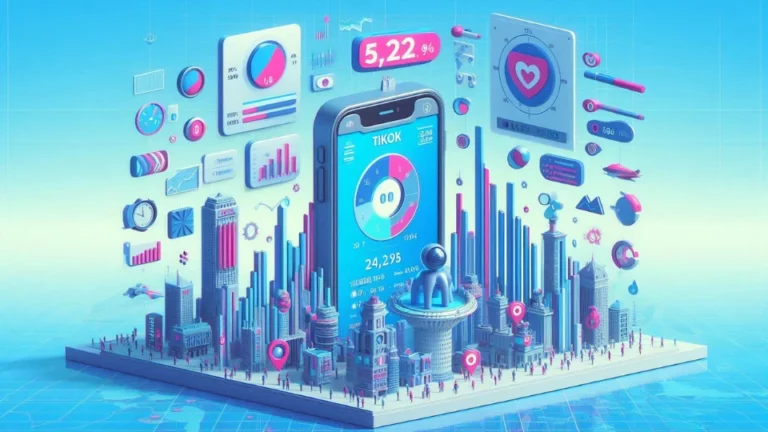Off-Page SEO: The Complete Guide to Boosting Your Website Authority
Want to rank higher on Google but already optimized your website’s content? Then it’s time to look beyond your site. Off-page SEO is the secret weapon behind high-ranking pages. It’s all about what happens outside your website to increase your site’s trust, authority, and visibility.
In this complete guide, we’ll break down everything you need to know about off-page SEO — from link building to brand mentions, social signals, and beyond. Whether you’re an SEO beginner or a digital marketer looking to improve rankings, this guide will show you how to get real results.
What Is Off-Page SEO?

Off-page SEO refers to all optimization efforts that take place outside your website. The goal is to improve your website’s authority, relevance, and trust in the eyes of search engines.
Key Components of Off-Page SEO:

- Backlink building
- Brand mentions
- Social media engagement
- Influencer marketing
- Online reviews
- Local SEO (Google Business Profile signals)
Unlike on-page SEO, which focuses on internal content and structure, off-page SEO focuses on external validation and signals.
Why Is Off-Page SEO Important?

Google uses off-site factors to evaluate how trustworthy and authoritative your website is. While content and user experience are critical, off-page signals help search engines understand how the rest of the web views your site.
Benefits of Off-Page SEO:
- Higher rankings in search results
- Increased domain authority
- More organic traffic
- Better trust from both users and search engines
- Competitive advantage over sites that only focus on on-page SEO
Off-Page SEO vs On-Page SEO: Key Differences
Here’s a quick comparison between the two major branches of SEO:
| Aspect | On-Page SEO | Off-Page SEO |
|---|---|---|
| Focus | Content & HTML optimization | External promotion & trust signals |
| Location | On your website | Outside your website |
| Examples | Keywords, meta tags, headers | Backlinks, social shares, brand mentions |
| Control | Full control | Partial or indirect control |
| Purpose | Relevance | Authority and popularity |
Both are essential — but off-page SEO is what propels your site’s reputation in the digital world.
The Top Off-Page SEO Techniques (2025 Edition)
To boost your site’s authority, here are the most effective off-page SEO strategies you should focus on:
1. High-Quality Link Building
Backlinks remain the backbone of off-page SEO. But it’s not about quantity — it’s about quality and relevance.
Best Practices:
- Focus on links from authoritative, relevant sites
- Use natural anchor text
- Avoid spammy or paid links
Link Building Strategies:
- Guest posting on industry blogs
- HARO (Help A Reporter Out) responses
- Broken link building
- Skyscraper technique (create better content and earn links)
2. Brand Mentions (Linked & Unlinked)
Even without a link, brand mentions are a powerful signal to Google. They help establish your business as an authority in your niche.
How to Get Brand Mentions:
- Be active on forums and industry communities
- Create newsworthy content
- Use press releases and PR campaigns
- Engage in influencer outreach
3. Social Media Engagement
While social media signals aren’t direct ranking factors, they help amplify your content, attract links, and build brand awareness.
Tips:
- Share content across all major platforms
- Encourage shares and conversations
- Collaborate with influencers to reach broader audiences
4. Online Reviews and Ratings
For local businesses, positive reviews are crucial. Google factors in your review volume and sentiment in local pack rankings.
Optimize Review Signals:
- Get listed on Google Business Profile, Yelp, and industry-specific directories
- Ask satisfied customers to leave reviews
- Respond to both positive and negative reviews
5. Local SEO & Citations
Local citations help reinforce your NAP (Name, Address, Phone) consistency across the web. This strengthens your local presence.
Local Off-Page SEO Tactics:
- Submit to local directories
- Claim and optimize your Google Business Profile
- Use schema markup for local SEO
Pros and Cons of Off-Page SEO
Pros:
- Improves authority and credibility
- Boosts rankings and organic traffic
- Enhances brand recognition
- Helps you outrank competitors
Cons:
- Less direct control compared to on-page SEO
- Takes time to build natural backlinks
- Risk of penalties from low-quality or manipulative tactics
How to Measure Off-Page SEO Success
To track the effectiveness of your off-page SEO efforts, focus on these key metrics:
- Domain Rating (DR) / Domain Authority (DA): Measures overall link authority
- Backlink Profile: Track number, quality, and diversity of links
- Referral Traffic: Visits from external sources
- Social Shares: Number of times your content is shared
- Brand Mentions: Tracked via tools like Google Alerts or Brand24
- Local Pack Rankings: Especially important for businesses with physical locations
Common Mistakes to Avoid in Off-Page SEO
- Buying links from shady sources — can lead to penalties
- Over-optimized anchor text — looks unnatural
- Ignoring disavow files — bad links can hurt your SEO
- Lack of consistent branding — weakens your online trust
- Relying on automation tools — real relationships matter more
Frequently Asked Questions (FAQ)
What is off-page SEO in simple terms?
Off-page SEO is everything you do outside of your website to help improve its search engine rankings — mainly through backlinks, brand mentions, and external signals.
Is link building still important in 2025?
Yes. Link building remains one of the strongest ranking signals for Google, but the focus has shifted to quality and relevance, not just quantity.
How do social media help in off-page SEO?
Social platforms increase content visibility, drive referral traffic, and can lead to earned backlinks — all of which support off-page SEO goals.
Are online reviews part of off-page SEO?
Yes. Reviews help build trust, local rankings, and reputation, especially for service-based and local businesses.
What’s the difference between on-page and off-page SEO?
On-page SEO involves optimizing your own content and site structure, while off-page SEO involves promoting your site through external signals like backlinks, mentions, and reviews.
Conclusion: Start Building Authority with Off-Page SEO
Off-page SEO is the trust-building side of search engine optimization. It tells Google that your website matters, that others refer to you, and that your brand is respected across the web.
By combining backlink strategies, brand awareness, social proof, and local signals, you create a strong foundation that goes beyond content optimization.
Want to improve your rankings and dominate your niche? Don’t stop at your own site. Start investing in off-page SEO strategies that scale your online visibility and long-term growth.







